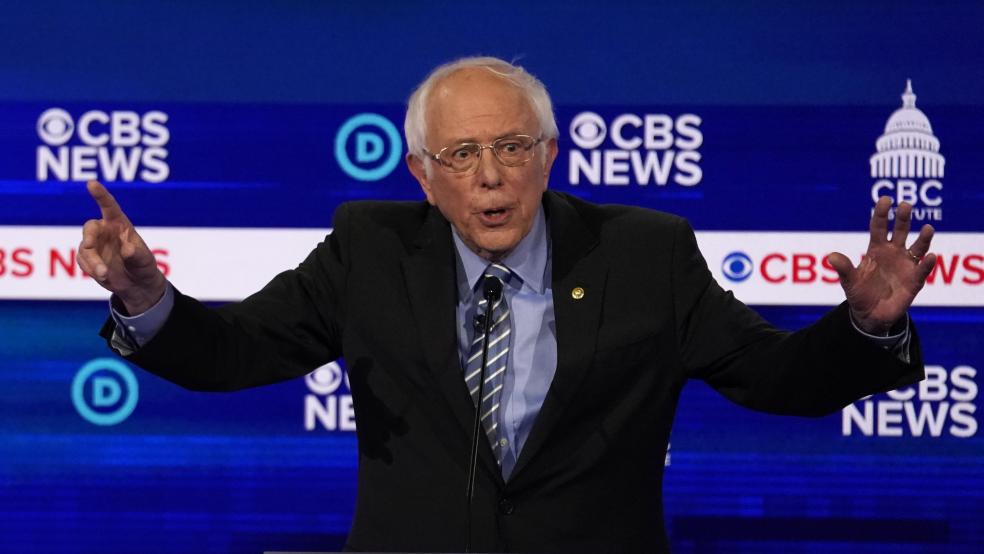Bernie Sanders’ Medicare-for-All proposal once again came under attack in Tuesday’s Democratic debate. In defense of his plan, the senator from Vermont cited a recent analysis in the British journal The Lancet that found that Medicare for all will lower health care costs by $450 billion a year and save 68,000 lives.
Sanders’ description of the Lancet analysis, which we summarized last week, was accurate as far as it goes, but health care experts have raised numerous questions about the reliability of the analysis itself. Here are some of the problems with the study, which was co-written by a former unpaid Sanders adviser, that critics are talking about:
- Utilization: The Lancet study assumes that Medicare for All will increase the level of demand for medical care, but only among the 24% of the population that is currently uninsured or underinsured. Most health care experts, however, say that the plan’s elimination of cost sharing, along with a more generous set of benefits, will likely produce a much larger increase in overall demand as people seek care without fear of incurring big medical bills — and that higher demand needs to be incorporated into the cost estimate.
- Payment rates: The study assumes that Medicare payment rates would be rolled out across the entire health care system — a reasonable assumption for a theoretical analysis, perhaps, but probably not so realistic, given the political power of the groups involved. Few experts believe that it will be possible to force doctors and hospitals to accept Medicare rates, which typically are significantly lower than the rates currently paid by private health insurance. Once payment rates approach more realistic levels — it’s hard to say exactly what those levels would be, except that they would be higher — a good portion of the savings in the Medicare-for-All system are eliminated.
- Administrative costs: Overhead costs in the current Medicare system equal 2.2% of total spending, much lower than the private insurance overhead rate of 12.4%. The study assumes Sanders’ proposed system would bring administrative costs down to current Medicare levels, but many experts doubt that overhead costs could go that low. “While a single-payer system would undoubtedly cost less to administer — requiring a smaller back-end staff, for instance — it would not eliminate the need for expensive items like electronic health records, which coordinate care between hospitals,” Shefali Luthra of Kaiser Health News said in her fact-check of the study.
- Lives saved: While it’s reasonable to assume that making health care more accessible would save lives, the number in the Lancet study — 68,531 deaths prevented per year — appears to have been derived from a single paper that provided a particularly large estimate of the mortality effects of health insurance. Based on a wider range of studies, the actual number is likely to be smaller.
- Long-term care: Sanders wants Medicare for All to cover the estimated $4 trillion cost of long-term care, which isn’t included in the Lancet study.
The bottom line: Sanders’ claim that Medicare for All would be more efficient and thus offer some cost savings seems reasonable, but the idea that a more generous health care plan that covers the whole population, built atop the current immensely expensive medical system, would be cheaper to operate seems less so. The Lancet study Sanders has cited uses questionable assumptions that tend to overestimate the savings while downplaying likely sources of increased costs.
As Vox’s Dylan Scott put it in his review of the Lancet paper, “There is a lot of guesswork in projecting what Medicare-for-all would cost and the effect it would have — and this is just one more set of assumptions and estimates to add to the pile.” More harshly, the fact-check of the study from Kaiser Health News and PolitiFact says that while the study does cite evidence to back up its claims, “many of its assumptions are flawed, and experts uniformly told us it overestimates the potential savings. ... [Sanders’] statement has some truth but ignores context that would create a dramatically different impression. We rate it Mostly False.”




